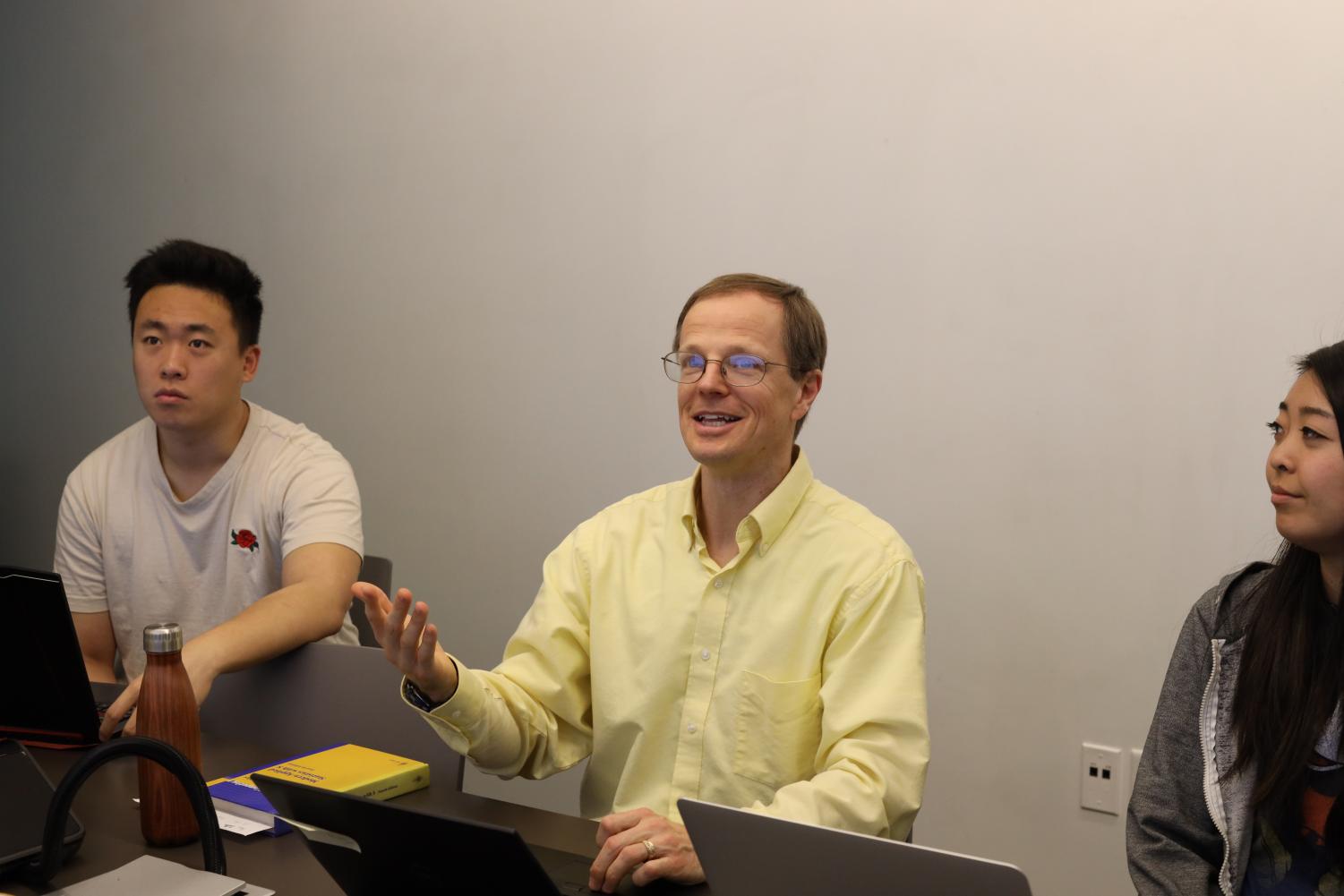Driven by the desire to serve the community through the Department of Math and Computer Science, students and faculty have come together as a class to cultivate the Quantitative Consulting Center this fall. In an effort to provide students and staff with quality statistical consulting services and supportive researching tools, the QCC holds three services that focus on design, analysis and reporting.
STUDENTS OF THE QCC
In the design service, students help clients create surveys and experiments that will enhance their clients’ approach to their data. The analysis service consists of analyzing the data from clients and the studies that were cultivated from the design service. Jason Wilson, director of the QCC, described the analytical process as a way of “operationalizing” the case the client presents in which the QCC determines how the real-world problem can be solved using statistical tools. Through the reporting service, clients are given any form of data delivery, such as a written report or slide presentation to properly present their data.
“The Quantitative Consulting Center is a source of connecting college students to local communities and also like a source of revenue or a source of opportunity for teaching to students and also connecting to the public,” said Daniel Shen, senior business major and marketing intern for the Department of Math and Computer Science.
To begin the work cycle, a client comes in to talk to the class about how the students can help answer questions or analyze the data. Then students analyze the data, using software with classical statistical methods. To finish, the students report back to the client about the conclusions made about the data that was first provided.
SERVING THE COMMUNITY THROUGH QCC
Wilson has taken on the role of heavily guiding the four students of the QCC. Although this is the first semester of the Quantitative Consulting Center, it has already worked with 10 clients.
“I have been really impressed at the diversity of projects,” Wilson said. “Projects have ranged from the genomes of sea organisms to a screen for Biola’s Health Center patients, from a national non-profit organization’s membership survey to ground-penetrating radar detectability. We’ve had a really great spectrum of different topics that have come in.”
Through the three services provided, Wilson upholds several expectations about how the Quantitative Consulting Center will benefit the clients that come from both on-campus and off-campus.
“I hope that we can support the Biola faculty both in the School of Science, Technology and Health, as well as the faculty from the other schools with their statistical needs that will save them time and improve the quality of their research,” Wilson said. “I hope that we can build Biola’s reputation and become financially self-sustained and offer quality service in the community through serving our off-campus clients.”







